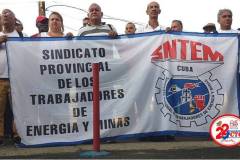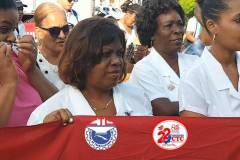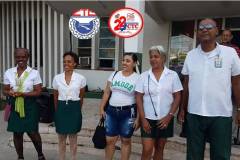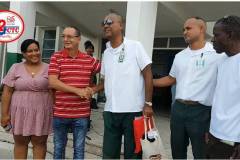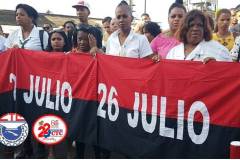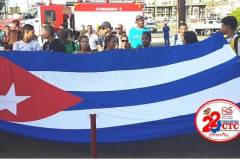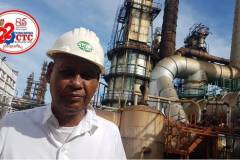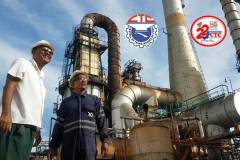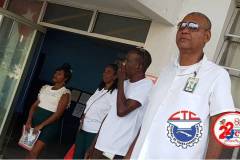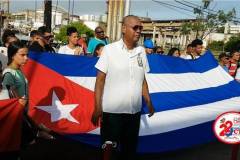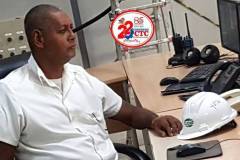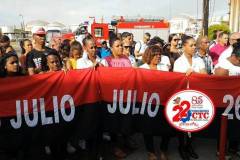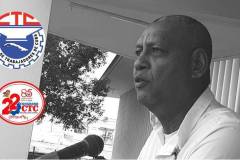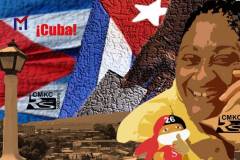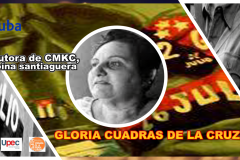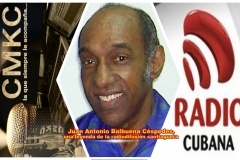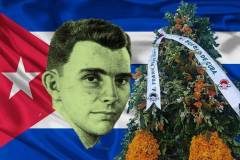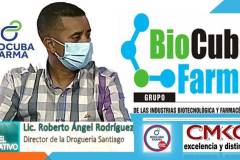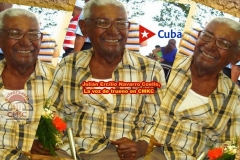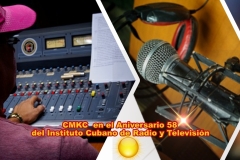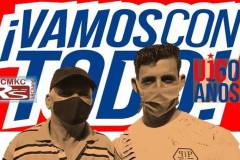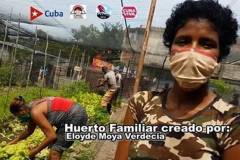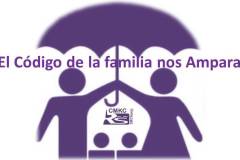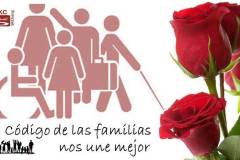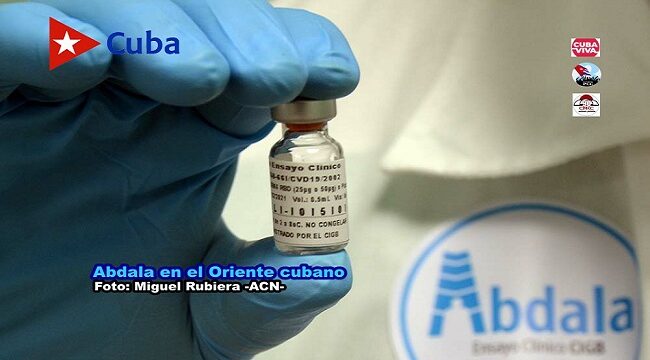
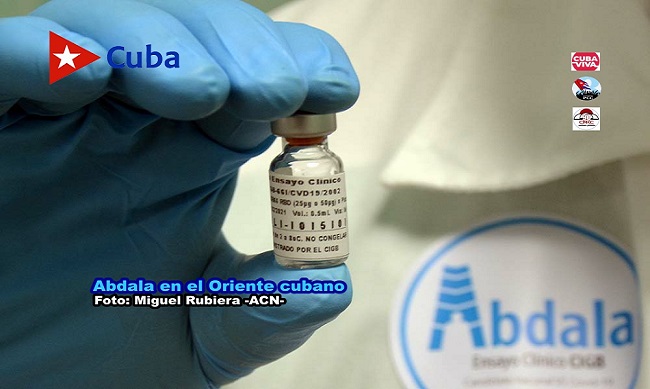
Abdala– SANTIAGO DE CUBA, Apr 2 (ACN) With the inoculation of CIGB-66, an anti-COVID-19 vaccine candidate by the name of Abdala, to primary and secondary line health workers, the intervention study in this at-risk population began on April 1st in the municipality of Santiago de Cuba in the province of the same name.
Abdala- At the Camilo Torres polyclinic and the Juan Bruno Zayas hospital, the first clinical sites in the territory were established for the vaccination, at the stage, of Public Health personnel with greater exposure to the SARS-CoV-2 virus, which causes the infectious disease.
Lenia Rodriguez, the researcher in charge at the Camilo Torres Public Health Center, told Cuban News Agency in an exclusive interview that the study includes 125 employees of that center and the same number at the Carlos J. Finlay Public Health Center, both health areas located in the 26 de Julio district, one of the areas with the highest daily influx of Santiago residents.
Large vaccination study with Abdala candidate starts in Santiago de Cuba https://t.co/a4CkUo5Vi9 @LaCmkc @IndioMayari @Santiag03419459 @SantiagoYo @oshun1958 @Toar21640791 @Pasarn3 @aguilarpaloma1 @CmkcConcierto @arevalo_eglis @YeroChao #SantiagodeCuba @tvchagocuba @SeiyuKaras
— Compay Naguito (@CompayNague) April 3, 2021
About 25 people make up the research team, including pharmacists, nurses, doctors, hygiene assistants, computer technicians and others of vital importance for the successful completion of a process that will contribute to the protection of those who are on the front line in the fight against the pandemic, he said.
Tatiana Marañón, in charge of the intervention at the hospital, detailed the protocolized flowchart: reception area where details of the inquiry are provided, vital sign taking consultation, inclusion, vaccinatory, observation room for possible adverse events and another one for first aid in case of any unfavorable reaction concerning the injection.
He highlighted the multidisciplinary composition of the professionals involved in the process, as specialists in intensive care, medical emergencies, psychology, internal medicine, informatics and statistics, the latter being in charge of guaranteeing a constant and accurate flow of information on how the study is progressing.
Marañón thanked the institution’s authorities for their understanding in the operation of the clinical site, aware of the importance for Cuba and the world of demonstrating the efficacy of the vaccine candidates and the immunization of all the workers in this sector, who, a little more than a year later, continue without giving up in this battle for life.
Nurses Lourdes Robert and Maida Prieto expressed their pride and commitment to the health of their co-workers and their fellow countrymen, which is why they expressed their willingness from the beginning to be included in the research staff.
More than 35,000 volunteers in the municipalities of Palma Soriano, Contramaestre and Santiago de Cuba will receive the three doses of Abdala in a short vaccination schedule (0-14-28) in the next few days in an intervention study that is taking place at the same time as Phase III of the clinical trial of this pharmaceutical formulation in the southeastern region of the archipelago.
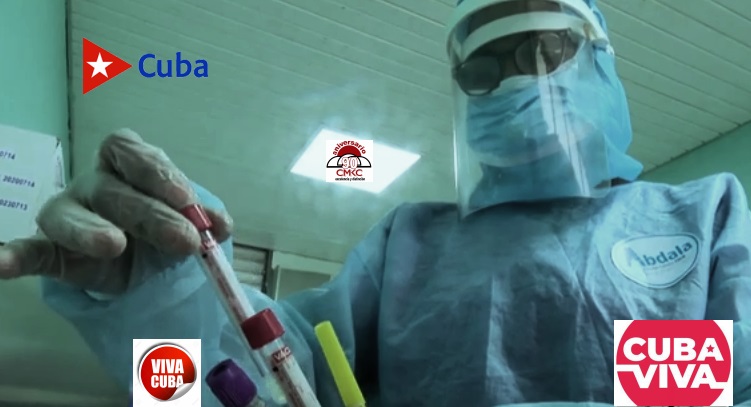
In Cuba, intervention studies are currently being carried out with two vaccine candidates, CIGB-66, promoted by the Center for Genetic Engineering and Biotechnology, and Soberana 02, of the Finlay Vaccine Institute.
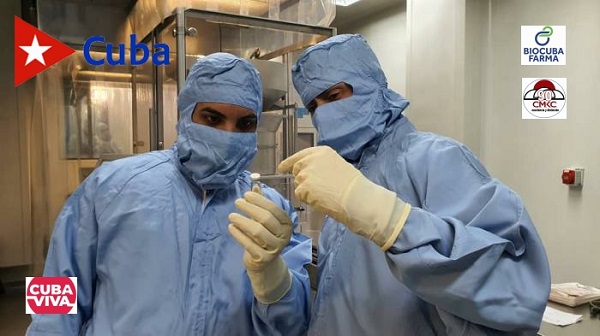
Behind Cuba’s successful pandemic response
By: Talha Burki
Cuba’s long-standing commitment to health has led to a successful COVID-19 pandemic response, but it is threatened by financial and supplier issues. Talha Burki reports.
As The Lancet Infectious Diseases went to press, Cuba was due to launch a phase 3 trial of its subunit conjugate vaccine against COVID-19. Soberana-2 is one of four candidate COVID-19 vaccines in development in Cuba. It is produced by the Finlay Institute in Havana. On the basis of as-yet-unpublished results from early-stage clinical trials, Vicente Verez-Bencomo, director-general of the Finlay Institute, expects the vaccine to show an efficacy in the region of 80–95%. “We are very optimistic”, he said. If everything goes according to plan, Cuba could start a mass vaccination programme for its 11·2 million citizens sometime in the summer.

